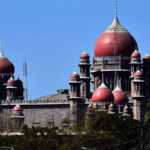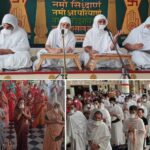
New Delhi, West Indies fast bowler Jayden Seales has been fined 25 percent of his match fee and given one demerit point after being found guilty of breaching the ICC Level 1 Code of Conduct during the first day of the second Test match against India here. The incident occurred during the 29th over of India’s first innings when Seales threw the ball towards batsman Yashasvi Jaiswal after bowling, hitting him on the pads.
The ICC stated in a media release that Seales was found guilty of violating Article 2.9 of the ICC Code of Conduct for Players and Support Staff. This relates to throwing a ball (or any other cricket equipment) at or near a player in an inappropriate or dangerous manner during an international match.
Seales Receives Demerit Point and Warning for Inappropriate Throw in Match
This brings Seales’ total number of demerit points to two within a 24-month period. If a player accumulates four or more demerit points within 24 months, they could face suspension. Seales challenged the sanction proposed by match referee Andy Pycroft, leading to a formal hearing.

The ICC stated in its release that Seales argued he was attempting a run-out. However, after reviewing multiple replays, the match referee concluded that the throw was unnecessary and inappropriate because the batsman was inside the crease and the ball hit his pads directly.
Also Read:
The incident was reported by on-field umpires Richard Illingworth and Paul Reiffel, third umpire Alex Wharf, and fourth umpire K.N. Ananthapadmanabhan. The ICC clarified that for Level 1 violations, the minimum penalty is an official warning, while the maximum penalty can include a 50 percent fine of match fees and one or two demerit points.






